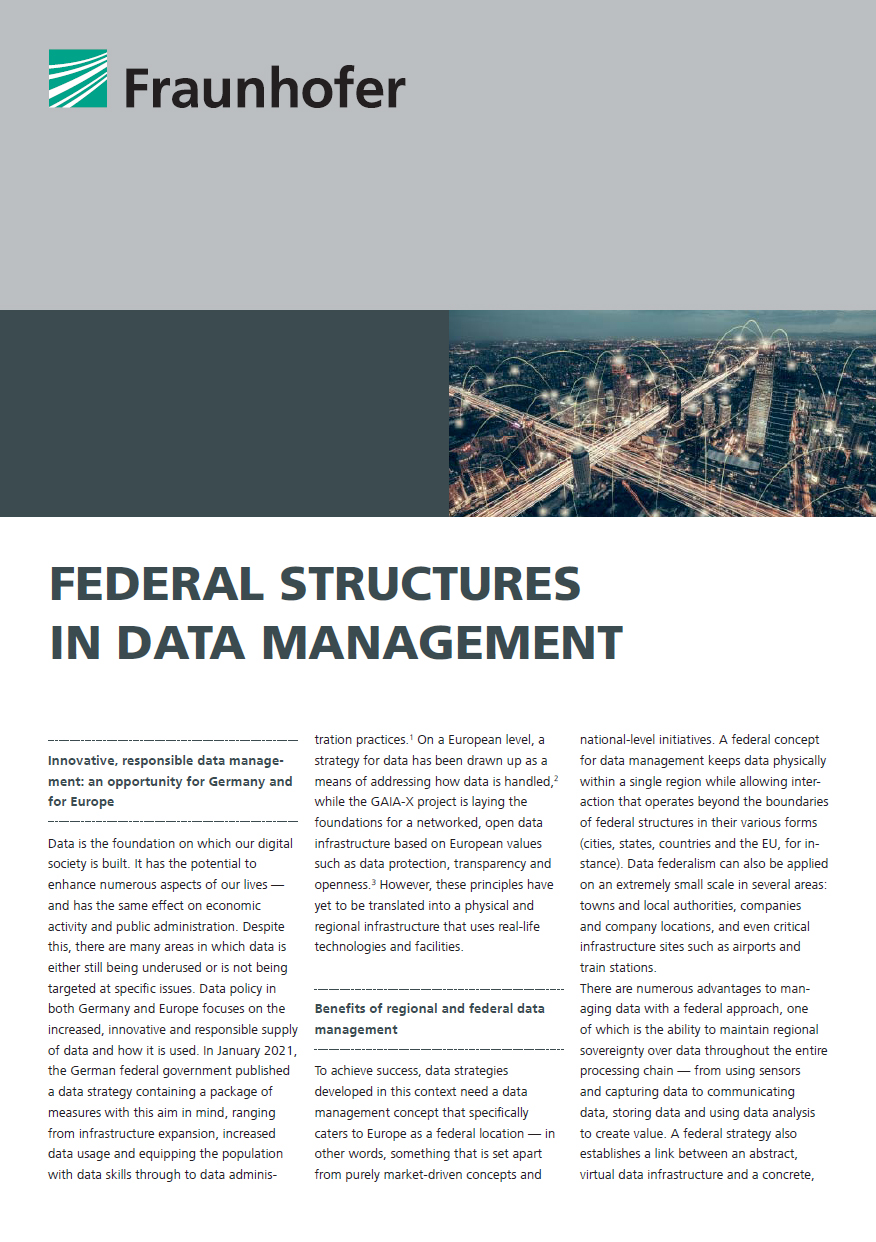Let’s get down to brass tacks. How do you propose establishing this kind of data management? What’s it going to take?
In terms of research, the first challenge of regional and federal data management lies in establishing the physical infrastructure and the corresponding virtual infrastructure. This would allow relevant data to be gathered from all kinds of sources, transmitted, stored, processed and used to derive recommendations. Particular attention should be paid here to interoperability with existing infrastructure, such as regional, one-off solutions or Gaia-X.
The second challenge is that new techniques and methods of data processing are required to deal with the ever increasing volumes of data. Applying the latest research findings in the field of distributed architecture and decentralized processing – the key concept here is edge computing – as well as artificial intelligence can offer a decisive competitive advantage here. A structure such as Fraunhofer CCIT, in which more than 20 Fraunhofer Institutes from different research areas work together on cognitive Internet technologies, can provide valuable ideas for implementation.
Position paper "Federal Structures in Data Management" for download
Which topic areas and which sections of society will benefit most from such regional and federal structures? Who needs them most?
Federal data management could benefit both the economy and society. The top priority is always to translate this into specific applications. For instance, in two different topic groups, we’ve already identified a great many applications each of which, in its own way, stands to benefit from regional and federal structures.
When it comes to the smart city, these are traffic and transportation management, infrastructure management, environmental management and regional supply processes. At the end of the day, our concept would give regions more data sovereignty while increasing transparency and acceptance. It would also generate more value for the general public.
In terms of Industry 4.0, federal data management could help with predictive and safety-critical monitoring of infrastructure and production, or help optimize building management. In addition to enhancing data sovereignty at companies, it also improves responsiveness and resilience across the board.
Interview by Lucas Westermann



